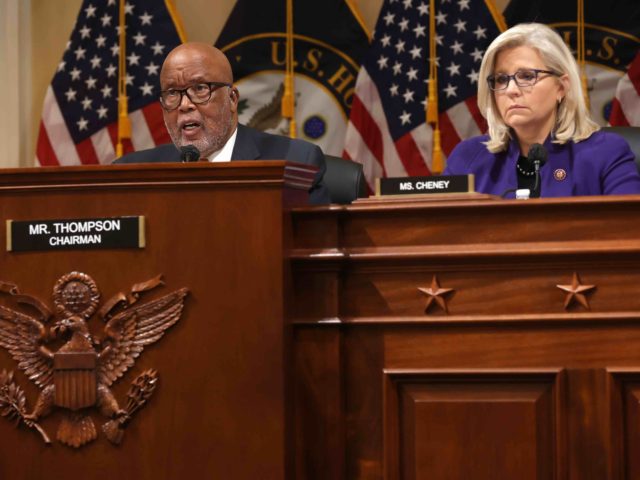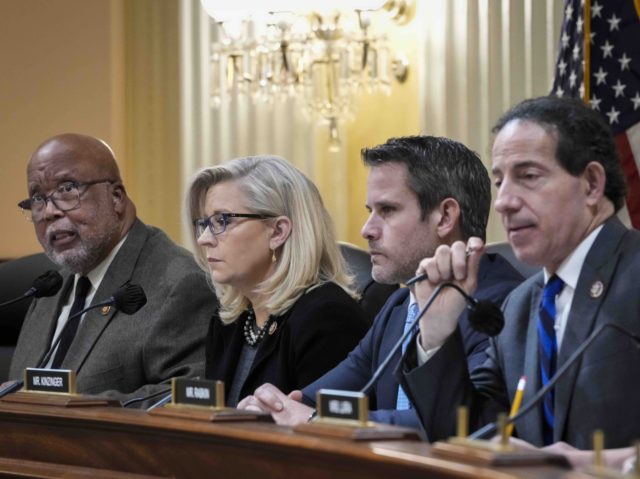Mark Meadows turned the tables on the U.S. House Select Committee on the January 6 Attack on Wednesday, filling a lawsuit in federal district court in D.C. that argues the committee is unconstitutional and in violation of House rules.
CNN and other establishment media outlets played the lawsuit as a last-ditch effort by a man desperate to avoid a subpoena — or desperate to appease his former boss, Donald Trump.
Yet the lawsuit is a serious threat to the existence of the committee.
The lawsuit makes some familiar arguments, such as that the committee is violating the Constitution’s separation of powers by encroaching on executive privilege. Former Trump aide Stephen K. Bannon, who is being prosecuted by the supposedly apolitical Department of Justice for contempt of Congress, is making the same case against his subpoena in federal court.
But Meadows goes further, pointing out that the January 6 committee violates the terms of its own enabling resolution.
The resolution, H. Res. 503, provides that the committee “shall” consist of 13 members, five of which “shall be appointed after consultation with the minority leader.”
But the committee only has nine members, seven of whom are Democrats, and only two of whom are hand-picked anti-Trump Republicans. Speaker of the House Nancy Pelosi (D-CA) rejected the five members chosen by House Minority Leader Kevin McCarthy (D-CA), an unprecedented step to ensure a one-sided inquiry.

WASHINGTON, DC – OCTOBER 19: U.S. Rep. Bennie Thompson (D-MS), chair of the select committee investigating the January 6 attack on the Capitol, speaks during a committee business meeting as vice chair, Rep. Liz Cheney (R-WY) looks on at Cannon House Office Building on Capitol Hill October 19, 2021 in Washington, DC. The committee voted to hold former Trump adviser Stephen Bannon in criminal contempt for refusing to cooperate with the committee’s subpoena. (Photo by Alex Wong/Getty Images)
Furthermore, Meadows’s lawsuit points out that while the chair of the committee can order subpoenas, that authority is not absolute. H. Res. 503 requires the chair of the committee to consult with the ranking member before issuing a subpoena for a deposition. But the committee has no ranking Republican member, which could make the committee’s subpoenas invalid.
If Meadows’s lawsuit is successful, he could not only block his own subpoena, but could see the entire committee declared invalid. Pelosi and the Democrats would have to start over — this time, obeying the rules, with five Republican members.
And Meadows drove home the point by naming every member of the committee as a defendant, not just Pelosi and the committee as a whole.
Each of the members — including the two Republicans, who are posing as defenders of the rule of law — is going to have to answer, and explain why they are participating in a Star Chamber that violates not only the principles of the Constitution, but the explicit rules authorized by the House Democrats in a supposed effort to protect democracy.
Joel B. Pollak is Senior Editor-at-Large at Breitbart News and the host of Breitbart News Sunday on Sirius XM Patriot on Sunday evenings from 7 p.m. to 10 p.m. ET (4 p.m. to 7 p.m. PT). He is the author of the recent e-book, Neither Free nor Fair: The 2020 U.S. Presidential Election. His recent book, RED NOVEMBER, tells the story of the 2020 Democratic presidential primary from a conservative perspective. He is a winner of the 2018 Robert Novak Journalism Alumni Fellowship. Follow him on Twitter at @joelpollak.

COMMENTS
Please let us know if you're having issues with commenting.